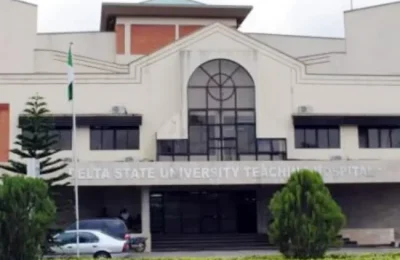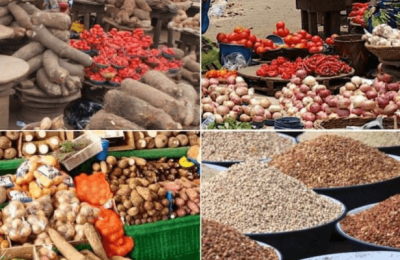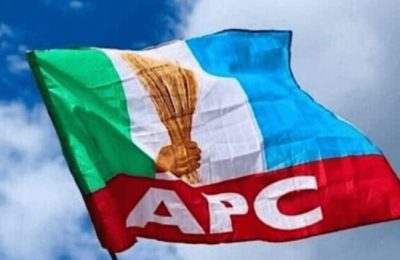In this report, KUNLE ODEREMI examines the conduct of Saturday’s governorship elections held in three states in the light of the recurring issues of vote trading malfeasances and other forms of impunity associated with major elections in the country.
A major spectacle that was recorded in the November 11 governorship polls in three states: Imo, Kogi and Bayelsa was the splash of huge bales of local currency (Naira) running into millions, by suspected vote buyers. This dimension to off-cycle elections showed how daring those behind the infractions of the law against vote trading and buying had become. Despite the massive deployment by law enforcement agencies of personnel in the bid to ensure a seamless process, including the presence of anti-graft agencies, the political forces neck-deep in compromising the electorate still appeared undeterred. Other incidences of ballot snatching, stuffing, killings and holding hostage officials of the Independent National Electoral Commission (INEC) almost obfuscated most of whatever lessons the country has learnt after 24 years of returning to civil rule.
Voter inducement has graduated from being a minor ailment to a vicious virus and scourge ravaging the political space of the country. Hitherto more pronounced at the level of party primaries, vote trading has transcended the phenomenon of discreet actions. On the eve of the general election in February this year, the police authorities stunned the citizens after they tracked a politician with a large sum of foreign currency said to be meant to compromise the election. The police claimed that he was reportedly arrested with nearly $500,000 in U.S. bills in his car and a list of possible recipients for the money. Last Saturday, operatives of the Economic and Financial Crimes Commission (EFCC) arrested 14 suspected vote buyers in Otueke, Adawari playgrounds in Bayelsa State and at various polling units in Imo and Kogi States. Also, a total sum of N11,040, 000 comprising N9,310,000 intercepted from suspected vote buyers and sellers in Bayelsa and N1,730, 000 seized from electoral fraud suspects across Imo State, were also recovered.

In another operation, one of the anti-graft agencies said it seized 32.4 million naira, or about $70,000, which it asserted was meant for vote buying in Lagos. Whereas the police said one suspect was already in custody, they did not release the identity of the individual or say whether the suspect and his accomplices were acting on behalf of a party. The Independent Corrupt Practices and Other Related Offences Commission (ICPC) also said its operatives apprehended four vote buyers in Sokoto and Katsina States during the governorship and House of Assembly elections.
Several cases of arrests were also captured in the media during previous elections, but with the trend subsisting, ostensibly due to partial or lack of diligent prosecution of the culprits. But more fundamental is the lethargy on display by the authorities to go beyond the arrest of the perceived middlemen by tracking the real sponsors and syndicate behind the flagrant subversion of the nation’s laws. There is no evidence to prove so far that any of the sponsors has been uncovered and made to pay for his action, leading to insinuations that they could be among the top notch in the society within and outside the major political parties categorised as sacred cows or the untouchables.
Vote buying, according to experts, is a factor of desperation by desperate politicians to win at all cost. They stake all they can mobilise to get to elective offices; to them, the end justifies the means. Coupled with this is the fact the negative impact of government policies have continued to weaken the purchasing powers of the critical mass of the Nigerian human population. The worsening level of poverty makes the majority of Nigerians vulnerable to political exploitation and manipulation. Another factor recently adduced for the political indulgence tagged vote buying is the progress being witnessed in the electoral system through the introduction of modern technology. Desperate politicians, therefore, have to evolve other ways of falsifying election results. Some observers claim that unethical practices on the part of other main stakeholders in the Nigerian project are culpable in the upsurge in the cases of money politics and vote buying to be precise. Alleged compromise between a few individuals in the cohesive arm of government and politicians is believed to a causative factor. Some pundits also said access to free fund by political bigwigs, especially, easily allows such complicity with security agents and election officials. Given this scenario and other contributory factors, the battle to tame vote trading and track their main sponsors appears a Herculean task even for the anti-graft agencies.

Law and vote buying
It is obvious that all those issues causing vote trading fall under human factor. The extant laws relating to the electoral process and system contain specific provisions targeted at guiding against process abuse or dealing with culprits where there are cases of perversion, where there is the political will by the authorities. The law expects the INEC to always capture the campaign expenditures of political parties. How effective does it carry out the mandate? There is no ambiguity in the Electoral Act (2022 Amended) on what constitutes vote buying. In Section 121, articles A, B C, and D, the Electoral Act 2022 itemises to include bribery and payment for votes, which attracts 12 months imprisonment or N500, 000 fine by offenders. It neither spares the giver nor the receiver, who is this instance if the voter. The Act quotes: “person who does any of the following—
(a) directly or indirectly, by his or herself or by any other person on his other behalf corruptly makes any gift, loan, offer, promise, procurement or agreement to or for any person, in order to induce such person to procure or to endeavour to procure the return of any person as a member of a legislative house or to an elective office or the vote of any voter at any election;
“(b) upon or in consequence of any gift, loan, offer, promise, procurement or agreement corruptly procures, or engages or promises or endeavours to procure, the return of any person as a member of a legislative house or to an elective office or the vote of any voter at any election
“(c) advances or pays or causes to be paid any money to or for the use of any other person, with the intent that such money or any part thereof shall be expended in bribery at any election, or who knowingly pays or causes to be paid any money to any person in discharge or repayment of any money wholly or in part expended in bribery at any election.
“(d) after any election directly, or indirectly, by his or herself, or by any other person on his or her behalf receives any money or valuable consideration on account of any person having voted or refrained from voting, or having induced any other person to vote or refrain from voting or having induced any candidate to refrain from canvassing for votes for his or herself at any such election, commits an offence and is liable on conviction to a maximum fine of N500,000 or imprisonment for a term of 12 months or both.
(2) A voter commits an offence of bribery where before or during an election directly or indirectly by his or herself or by any other person on his or her behalf receives, agrees or contracts for any money, gift, loan, or valuable consideration, office, place or employment, for his or herself, or for any other person, for voting or agreeing to vote or for refraining or agreeing to refrain from voting at any such election.”
INEC
At a programme held before the 2023 elections, a former chairman of INEC, Professor Attahiru Jega, former INEC National Commissioner, Amina Zakari; Chairman of The Electoral Forum, Prof Bayo Olukoshi; former INEC National Commissioner, Professor Anthonia Simbine; among other prominent persons highlighted the negative impact of the activities of those behind the unwholesome act. One of their recommendations was the need to firm up the punishment for trading in votes. According to them, “Vote buying and selling, as well as delegate inducements should be criminalized with strict enforcement of penalties through collaborative efforts amongst relevant agencies including Police, EFCC, ICPC and INEC. Further amendment of the Electoral Act is required in some key areas including the delegate selection process to ensure the quality of delegates, and address vote buying and selling, amongst others.”
Another prominent individual who seriously disturbed by vote trading is a former Returning Electoral Commissioner (REC) in Akwa Ibom State, Mike Igini. The legal practitioner is seriously worried that the ugly trend has “assumed the level of an epidemic and it is the greatest thing that we need to deal with.” His greatest concern borders on the negative impact of voter buying on performance as money politics takes the front stage in the scheme of things. He agrees that the menace is not peculiar to Nigeria but that there has to be a pragmatic measure to arrest it before it festers beyond imagination. Igini said: “Vote buying has become a problem and it will have huge implications if we don’t stop it now. The first implication of vote buying is that it is going to remove performance politics because the opportunity is that when an incumbent has performed, in the next election for instance, the fellow should be rewarded on account of performance. But because of vote buying, if not dealt with right away, there will be no performance anymore because all you need to do is to keep money somewhere to do the same, if your challenger is going to buy votes. Secondly, vote buying, if not stopped, reinforces inequality in the society because it would be the case of only the rich and the wealthy winning elections. It will also lead to what is called class bias politics. There is what is called the quality of voting of all citizens but when you allow vote buying to thrive, you are going to flood the society with inequality of public franchise.”
Efforts of other individuals and organization to combat vote trading were discernible in a letter written by SERAP. It challenged the leadership of the INEC to commit to prosecuting the culprits to guarantee the integrity of elections. SERAP said vote-buying and other forms of electoral corruption tend to freeze out the less wealthy candidates and parties. “Wealthy candidates and their sponsors ought not to be allowed to profit from their crimes. We are concerned that impunity for vote-buying and electoral bribery is widely prevalent in Nigeria, as perpetrators are rarely brought to justice.” It added that if voting was as important as the authorities claim always, the buying of democracy by wealthy politicians and their sponsors” must come to an end. “Vote buying encourages poor governance and weakens citizens’ capacity to hold their ‘elected officials’ accountable for their actions. When political candidates or their sponsors decide to buy the support of the people rather than contest fairly for their votes, there are possibilities that such candidates and sponsors will show a disregard for democratic rules and a disposition to adopt illegal means becomes inevitable. Vote buying is entirely an act of election malpractice connected with vested interest since an election can be said to be free and fair when it is devoid of vote buying, ballot snatching, and intimidation,” SERAP asserted.
INEC
Perhaps, the unbundling of INEC could solve part of the burden of the commission on the cases bordering on electoral offences. The commission lacks the power to arrest suspects over infractions during elections. The onus is on the law enforcement agencies, especially the police, which as institution, is encumbered by a myriad of challenges. INEC Chairman, Professor Mahmood Yakubu recently gave some figures on the pending cases concerning election issues in the last general election. He was quoted to have said INEC was collaborating with a team of lawyers towards prosecuting the suspects pro bono, which underscores the fact that the INEC lacks the capacity and logistics to cope with the gamut of cases on ground. He said: “I can confirm that we have received 215 case files from the Nigeria Police following their arrest and the conclusion of an investigation into electoral offences arising from the 2023 General Election. We are working with the Nigerian Bar Association NBA to prosecute the alleged offenders. Already, the NBA has submitted a list of 427 lawyers across the country, who have volunteered to render pro bono services to the commission. They are not charging legal fees but by mutual agreement, the Commission will provide a token amount to cover filing fees/expenses. We are most grateful to NBA and its President, Yakubu Maikyau (SAN), for this historic collaboration. Similarly, we are working with the Economic and Financial Crimes Commission EFCC and the Independent Corrupt Practices Commission ICPC on the prosecution of cases relating to vote buying and associated violations,” he stated.
Be that as it may, a Non-Governmental Organisation (NGO), Africa Electoral Integrity Initiative (AE2i), says it is imperative to ensure stiffer sanctions and diligent prosecution of those involved in vote buying and selling. In his opinion, Convener and Regional Director of AE2i, Dr Daniel Omofoman decried the new trend of “open vote buying” in the country. “We believe the issue of vote buying is becoming a virus and canker worm in the Nigerian system and we must not forget that it a criminal offence. So, we need stiffer sanctions and prosecution of all those involved in this nefarious activity so as to serve as deterrent and grow our democracy in line with international best practice” he said.
YOU SHOULD NOT MISS THESE HEADLINES FROM NIGERIAN TRIBUNE
Nigeria has highest cement price in the world — Producers
FOR about 10 years now, Nigeria has remained the country with the highest cement price in the world, national chairman, Cement Producers Association of…
Kogi: INEC to hold fresh elections in 59 polling units Nov 18
The Independent National Electoral Commission (INEC) has disclosed its intention to conduct fresh elections in…
Twins who graduated First Class in UNILORIN say school separated them during exams
Taiwo Hassanah Subair and Kehinde Aishah Subair are identical twin sisters and First Class graduates of…
FULL LIST: ‘Shanty Town’, ‘Herdsmen’, ‘Underbelly’ top BON Awards nomination
Best of Nollywood Awards has officially released nominations lists and categories for the 2023 Nollywood award ceremony. Stylised as…
Helen Paul and other bastardy stories
Everyone has a history; how you act and tell your story defines you. Ace comedian and celebrity, Helen Paul, trended wildly last…
Nigeria will host befitting African Canoe Sprint Championship — Porbeni
President Nigeria Rowing, Canoeing and Sailing Federation (NRCSF), Rear Admiral Festus Porbeni (rtd) has…







